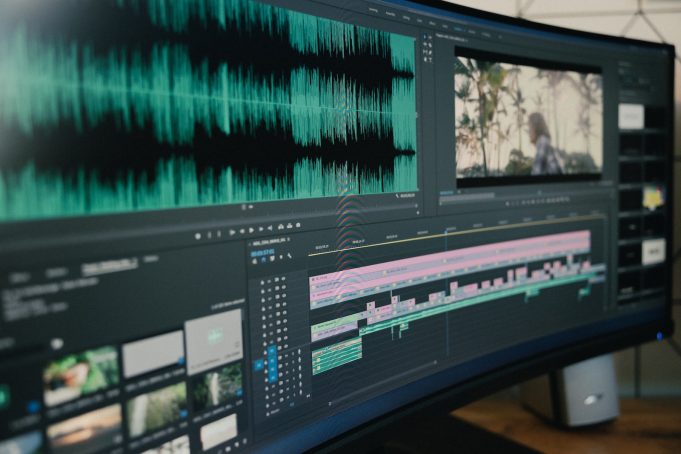The progression of AI in recent years has been huge news in the technology and entertainment sectors. Even people with no interest in either will have heard about developments that are changing the ways businesses operate.
While AI undoubtedly has its benefits and will help to streamline processes, it is not without controversy. The idea that AI ‘humans’ could replace actual humans in entertainment has caused worry for many people who fear their jobs are under threat.
AI in the entertainment sector is expected to grow at a CAGR of 31.89% from a market valuation of US$17.927 billion in 2021 to an enormous $124.483 billion by 2028. So where do things stand today?
AI in the Entertainment Industry
The use of AI in all types of industries allows businesses to automate processes and streamline operations. The development of AI to be reactive to changes in markets or manufacturing has taken the idea of automation to the next level.
Not only can AI be used behind the scenes, but the entertainment industry has also started to introduce AI in public-facing roles.
Pre-recorded videos have long been part of interactive experiences online and at entertainment venues. AI now has the ability to create public-facing characters that can react to specific customer needs in a way that a human might.
The rise of AI and ChatGPT to learn and develop as it goes has come to the fore in the last few years and the entertainment industry is just one that has been affected.
Online Gambling
Online gambling is a multi-billion dollar industry in the U.S. and is only set to get bigger as individual states pass legislation that loosens online betting rules. American gambling is governed by individual states with each having the power to legalize in-person and online betting.
Many states have moved to legalize online casinos and sports betting, generating billions of dollars in revenue in the process. For example, Pennsylvania’s Internet casino options provide a range of options for online gamblers and have enjoyed annual revenue growth of 35% with slot machines alone bringing in $94.9 million, putting the state up there among Nevada and New Jersey as gambling meccas.
This growing industry has been helped with AI technology that has helped operators manage customers and tailor individual marketing campaigns to them based on their gameplay and spending habits.
The use of AI to provide a better gaming experience—including AI dealers in card games—will take online gambling to the next level. Not only will it be a cost-efficient way for operators to offer high-end gaming, but it will also allow tailored reactions and marketing to be implemented during gameplay.
Writing
The use of AI to write high-quality copy has been great news for online businesses that have used it to generate valuable information for their sites. The concept of these systems learning factual information as well as different writing styles could also impact the creative writing industry.
The art world has already seen the controversy surrounding the learning of certain styles to create brand-new work. For example, an artist’s body of work could be fed into an AI system that would analyze their style and use of color to then create new works based on prompts by the user.
This same concept could feasibly be used to generate novels by famous authors based on their previous works with a loose outline of a story being built up by AI.
TV & Movies
The TV and movie world is currently in crisis as actors and writers demand fair pay based on streaming rights, and battle for their own image rights.
Most people might think that actors are well paid for what they do, and this may be the case for a lucky few. However, those in supporting roles can find it difficult to make a living. Many writers are in the same boat and the increasing popularity of streaming platforms means their work can be easily accessed by people around the world.
The threat of AI replacing human actors is something that many in the industry feel is very real. The idea that certain mannerisms and movements can be stored and used for background roles could see many lesser-known actors finding it even harder to find roles.
Even bigger names in the industry have concerns about their likeness being used in future projects. The idea of this was touched on in the most recent season of the dystopian drama Black Mirror, with actors losing control of their image rights and being portrayed on screen in roles they are not happy about.
Music
The use of AI technology to curate holograms of famous musicians who are no longer with us has allowed concerts to take place with the likeness of these artists performing.
This gives many fans the opportunity to see some of the biggest names in music. However, since this technology has arrived well after many passed, it is down to the estate whether they allow this.
Conclusion
There is no doubt that AI technology can help the entertainment industry in a variety of ways. However, it is essential that the businesses using this ensure it does not erase the need for human input.
The ability to integrate AI into the entertainment business without infringing rights or hampering the careers of creatives will be key to how well it is accepted. The recent actor and writer strikes are just one example of how many people fear it could be used as a way for corporate greed to take over.










